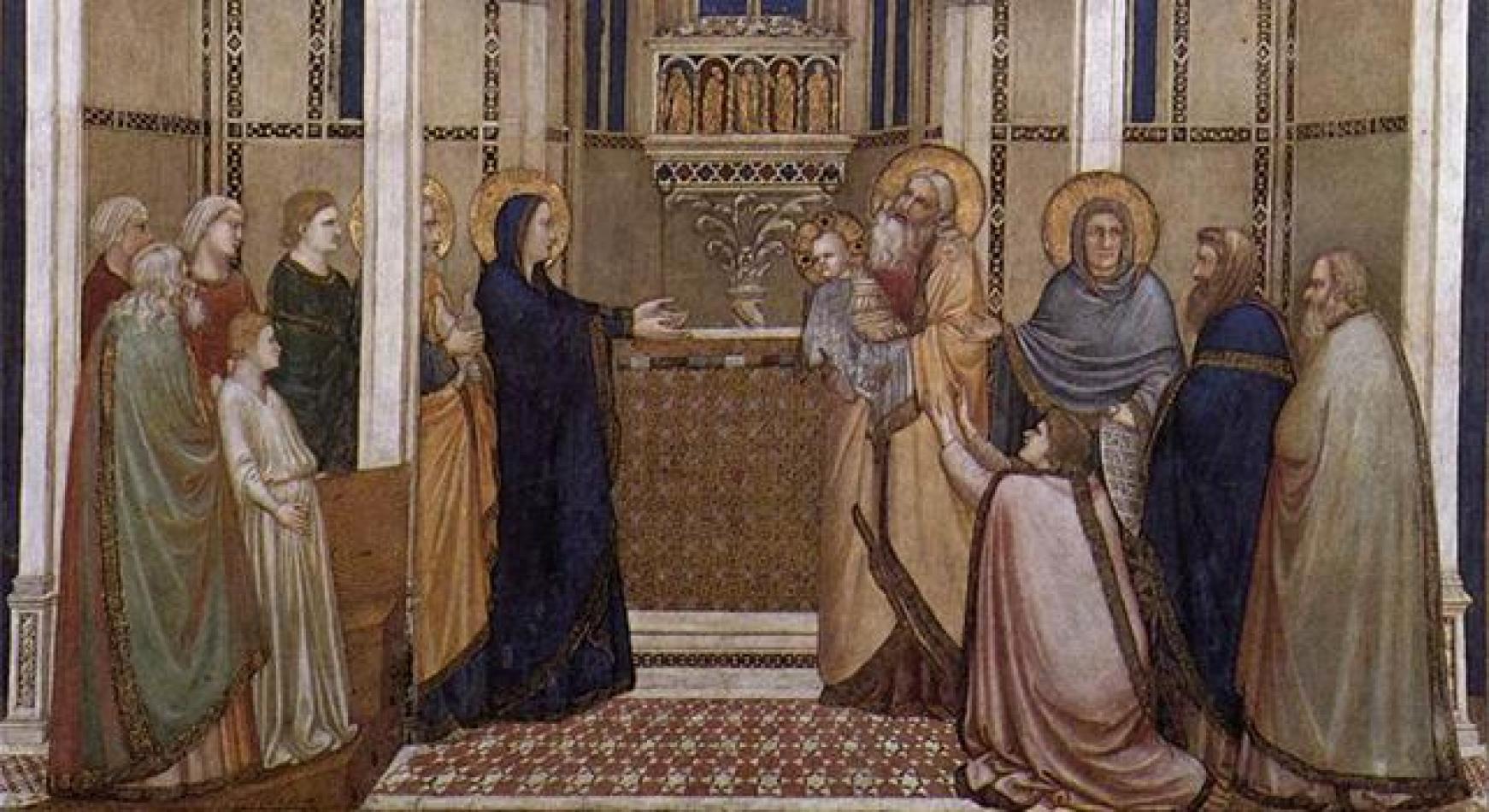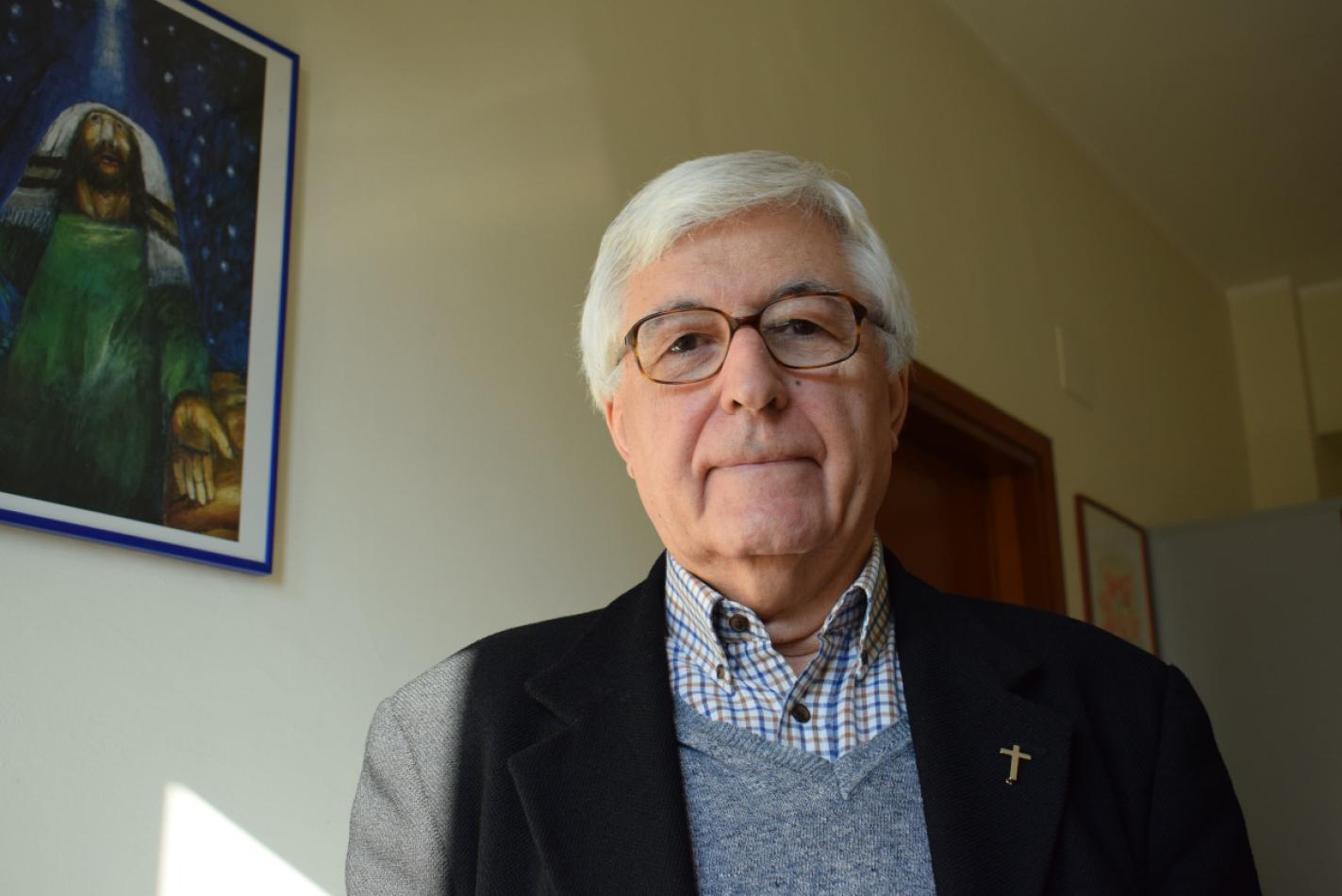Daniel Comboni
Comboni Missionaries
Institutional area
Other links
Newsletter
The Gospel of John (6,60-69) has preserved the story of a powerful crisis among Jesus’ followers. We only just have facts. It only tells us that the disciples find Jesus’ way of speaking harsh. Probably the acceptance he asks of them seems excessive. At one point, «many of his disciples went away and accompanied him no more». (...)
“Lord, to whom shall we go?”
John 6:60-69
We have reached the end of chapter 6 of the Gospel of John, which we have been listening to for five Sundays, interrupting the reading of the Gospel of Mark, as prescribed by this year’s liturgical calendar. Today’s passage presents the reaction of Jesus’ disciples to the discourse He had just delivered in the synagogue at Capernaum, the day after the miracle of the multiplication of the five loaves and two fish. The focus is no longer on the crowd or the Jews, but on the disciples, who take a stand in response to Jesus’ claim of being the Bread/Word and the Bread/food and drink descended from heaven.
The passage is divided into two parts. In the first, we find a group of His followers murmuring: “This is a hard teaching. Who can accept it?” These disciples are scandalised and decide to leave. In the second part, Jesus addresses the Twelve, asking them, “Do you also want to leave?” Saint Peter speaks on behalf of the group, responding, “Lord, to whom shall we go? You have the words of eternal life, and we have come to believe and to know that you are the Holy One of God.”
The atmosphere is charged with tension, almost palpable. As Jesus reveals the deep meaning of the sign He had performed, discomfort, murmuring, and criticism grip His entire audience: the crowd, then the “Jews” (i.e., His religious opponents), and now even the large group of disciples who had been following Him, drawn more by His miracles than by the novelty of His message. Then something unexpected happens: the greatest sign performed by Jesus, recognised as the messianic sign everyone had been waiting for (“This is truly the Prophet, the one who is to come into the world!” v.14), becomes His first great failure. The situation is turned upside down. However, Jesus was not caught off guard. In fact, from the day before, when the people wanted to “take Him” (v.15) to make Him king, Jesus had perceived the ambiguity of the crowd’s expectations. Satan had returned to tempt Him!
How does Jesus explain this situation? There are two mentalities that compete for the human heart: the flesh, which “counts for nothing,” and the Spirit, which “gives life.” The spirit of the flesh acts on instinct, while the Spirit of God acts through faith. However, faith is not an achievement of man but a gift from God: “This is why I told you that no one can come to me unless it is granted by the Father.”
This is a dramatic moment of crisis in Jesus’ ministry, comparable to His failure in Nazareth, reported by the three synoptic Gospels. There, Jesus reacted with astonishment, here with bitterness. We should not think that Jesus was indifferent or insensitive to His listeners’ reactions! He experienced all the emotions we do. In this case, we can imagine that He felt sadness, frustration, and bitterness due to the hardness of heart of His listeners.
What about the Twelve? This is the first time the group appears in John’s Gospel. Perhaps even they did not fully understand, and a mix of thoughts and emotions filled their minds and hearts with confusion. Peter speaks for the first time here, and with his profession of faith, helps the group regain its unity. But nothing will be the same as before. Beyond the disbelief and abandonment of many, the dark cloud of the announcement of a betrayal now hovers over the group.
Points for Reflection
1. “Choose this day whom you will serve!” There are moments when we are forced to make a decision and stake our lives. “Choose this day whom you will serve!” says Joshua to the twelve tribes gathered at Shechem (Joshua 24, first reading). “Do you also want to leave?” Jesus asks the Twelve. Unfortunately, we sometimes tend to procrastinate on our decisions and try to keep all options open. But whoever seeks to save their life will lose it!
2. “Even if all abandon you, I will never abandon you!” It is striking that Jesus is ready to let the group of Twelve go and resume His mission alone. Alone, but solid! At the supreme moment, He will say, “You will leave me alone; but I am not alone, because the Father is with me” (John 16:32).
In this historical moment, when Christian faith no longer enjoys social consensus, when the words of the Gospel come true once again: “Many of His disciples turned back and no longer followed Him,” we need sincere and generous Christians like Peter. May God grant that, despite our acute awareness of our fragility, we can say, with the simple trust of a child: “Even if all are scandalised by you, I will never be scandalised!” (Matthew 26:33).
3. Evangelising our failures. We all accumulate experiences and memories of failures and setbacks that can become burdens on our journey. Time does not always heal them. They need to be evangelised. As the years pass, we realise that our life is not a triumphant march of victories and medals, as we had dreamed. Accepting our fragility and limits with serenity, reconciling with our reality, and enduring defeats without losing heart is the only way to find inner peace and freedom.
Fr. Manuel João Pereira Correia, mccj
THE DECISIVE QUESTION
John 6: 60-69
by José Antonio Pagola
The Gospel of John has preserved the story of a powerful crisis among Jesus’ followers. We only just have facts. It only tells us that the disciples find Jesus’ way of speaking harsh. Probably the acceptance he asks of them seems excessive. At one point, «many of his disciples went away and accompanied him no more».
For the first time Jesus experiences that his words don’t have the desired force. However he doesn’t take them back, but reaffirms them even more: «The words I have spoken to you are spirit and they are life. But there are some of you who do not believe». His words seem harsh, but they transmit life, make us come alive, since they contain God’s Spirit.
Jesus doesn’t lose his cool. The failure doesn’t upset him. Turning to the Twelve he puts a decisive question: «What about you, do you want to go away too?». He doesn’t want to keep them by force. He allows them the freedom to decide. His disciples mustn’t be servants, but friends. If they want to, they can return to their houses.
Once again, Peter answers in the name of them all. He answer is exemplary. Sincere, humble, sensitive, and proper of a disciple who knows Jesus sufficiently so as to not abandon him. His attitude could still today help those whose wavering faith suggests that they make do without any faith at all.
«Lord, to whom shall we go?». It makes no sense to abandon Jesus just like that, without having found a better and more convincing teacher. If they don’t follow Jesus, they are left without knowing whom to follow. They shouldn’t rush into it. It’s not good to get left without light or a guide in life.
Peter is realistic. Is it good to abandon Jesus without having found a more convincing and attractive hope? Is it enough to substitute a lesser style of life, one with hardly any goals or horizon? Is it better to live without questions, approaches or searching of any kind?
There’s something that Peter doesn’t forget: «You have the message of eternal life». He feels that Jesus’ words aren’t empty or deceitful words. Alongside of Jesus they have discovered life anew. His message has opened for them a life eternal. Where could they find better news of God?
Peter remembers lastly the fundamental experience. Living with Jesus, he has discovered that Jesus comes from God’s mystery. From far away, at long distance, out of indifference or disinterest you can’t recognize the mystery that Jesus contains. The Twelve have handled it up close and personal. That’s why they can say: «We believe, we have come to know that you are the Holy One of God». They will keep following close to Jesus.
José Antonio Pagola
Translator: Fr. Jay VonHandorf




